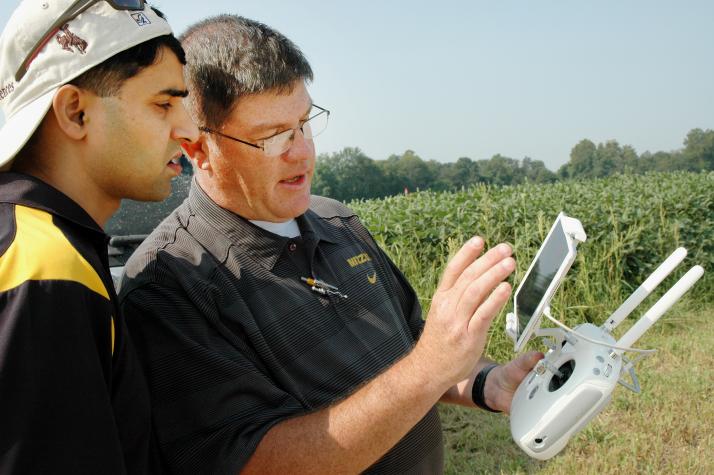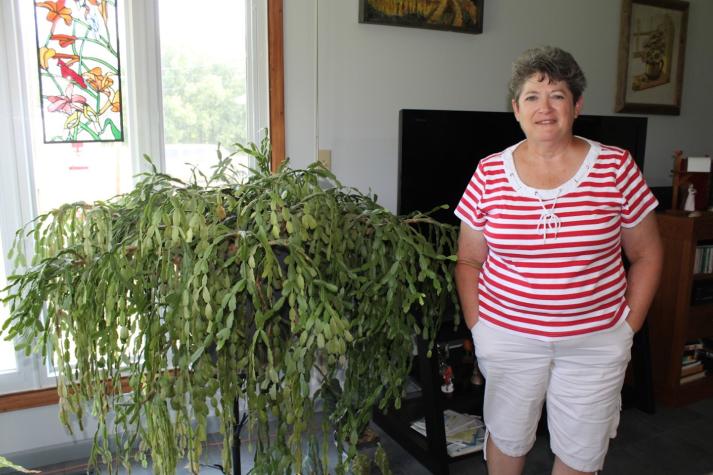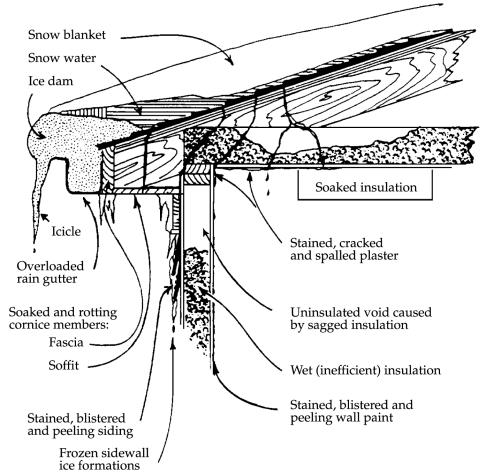
Tax refund advice: Save some, spend some
COLUMBIA, Mo. – Income tax refunds are ready to roll out. You might want to hold on to some of that cash. Refunds are wages you earn throughout the year and should be thought of as hard-earned money rather than found money, says Andrew Zumwalt, personal finance specialist with University of Missouri Extension. For the wise, a refund windfall is a chance to stash some of the cash in an emergency fund. Use some to pay down high-…

Farm bill action possible in early 2018 if Congress keeps much of present law
COLUMBIA, Mo. – There’s an open window for passing a farm bill in early 2018, says Scott Brown, University of Missouri policy analyst. But potential passage gets tough by late spring.Getting action depends on Congress quickly agreeing to pass a farm bill much like what exists.Mostly, farmers are pleased with current legislation, Brown told the MU Crop Management Conference. But every commodity group has ideas for tweaks to their parts…

Improved drone technology gives farmers edge in scouting fields
COLUMBIA, Mo. – Drones are higher in quality and lower in price than they were just a few years ago when farmers began using them, says University of Missouri Extension natural resources engineer Kent Shannon.

Tips for safe snow shoveling
Stay safe while shoveling snow with tips on lifting, breaks, hydration, and proper clothing to reduce strain and injury.

Soil testing kits available at local MU Extension centers
COLUMBIA, Mo. – Submitting soil samples to your local University of Missouri Extension center is easy, says Manjula Nathan, director of the MU Soil and Plant Testing Laboratory. Now is the best time of the year to submit samples to the accredited lab. Soil tests help farmers, gardeners and lawn owners find what fertilizers they may or may not need, says Nathan.

Christmas cactus: A gift that keeps on giving
COLUMBIA, Mo. – The summer they were married, Dan and Earlene Britton received a cutting from a Christmas cactus belonging to Earlene’s grandmother Naomi Ingrum. Thirty-six years later, the Brittons and the cactus continue to do well in spite of coast-to-coast moves and climate changes.

Frozen pipes create big problems during cold weather
MARSHFIELD, Mo. – Water has a unique property: It expands as it freezes. This puts tremendous pressure on whatever is containing it, including metal or plastic pipes. No matter the strength of the container, expanding water can cause pipes to break.

Cold snap brings fescue foot to cows on toxic fescue grass
Cold snaps can trigger fescue foot in cattle grazing toxic fescue, leading to lameness and hoof loss. Early detection helps prevent losses.

Woodland management: Understanding casualty losses in timber
With the recent storms that have moved through Missouri, many landowners have been asking how to report the casualty loss of timber on their federal income tax returns. Unfortunately for many timberland owners, the federal tax rules that deal with casualty loss are often difficult to understand and may seem to penalize landowners who have suffered losses from damaged or destroyed timber.

Woodland management: Basic forestry tools
Explore essential forestry tools for woodland management, from compasses to chain saws, and learn how each tool helps maintain healthy woodlands.

Wood technology 101: Soft hardwood, hard softwood
Discover the truth behind softwoods and hardwoods, and why their names don’t always reflect their actual hardness. Learn more about the science of wood.

Wood technology 101: Basic wood terminology
Radial or tangential? Hardwood or softwood? Springwood or summerwood? Ring porous or diffuse porous? Let’s demystify some of the terms that foresters and wood scientists use to describe wood.

Woodland management: Divide your woodland into stands
To manage your woodland effectively, it should be divided into compartments called stands. Stands are areas of the forest that have similar species composition, soils and topography. Often the term stand is used flippantly to describe an entire forest or boundary. But this broad use of the term indicates a misconception that can seriously impact the effectiveness of any prescribed forest management activity.

Woodland management: Forestry terminology
Forestry is a specialized field of study and has its own vocabulary. As you become involved with the development and management of your woodland, you will often hear or read terms or phrases that might be unfamiliar. Understanding these terms and phrases will help in talking with a forester, understanding technical forestry publications, and provide a deeper understanding and appreciation of your woodlands.

The bid box: Spring 2017
It is a straightforward bid box this time around.

The bid box: Winter 2017
This installment of the bid box is a good example of how some bidders will go the extra mile in making sure their bid is "different." While most bids I usually see are rounded to the nearest 10 or 50 dollars, some buyers will try to set themselves apart and submit a bid that is a few dollars higher than their competitors’ bids. This is especially true if the buyers know each other well. However, when it comes to walnut…well, some folks…

The bid box: Fall 2016
Gasconade County, Missouri54 acres697 trees marked for saleEstimated volume: 93,900 bd. ft. (Doyle Scale)59,900 bd. ft. (445 trees) was white oak; of which 10,500 bd. ft. was potential stave qualityRemaining 34,000 bd. ft.

Species spotlight: White Oak
White oak (Quercus alba) is one of the preeminent hardwoods of eastern and central North America. It can be found from Minnesota, Ontario, Quebec, and Nova Scotia south as far as northern Florida and eastern Texas.Q. alba typically reaches heights of 80 to 100 feet at maturity, and its canopy can become quite massive if growing in a wide-open space, such as a field.

Reduce your risk: Lyme disease
According to the U.S. Centers for Disease Control and Prevention (CDC) and the American Lyme Diseases Foundation, the chance of contracting Lyme disease (LD) in Missouri is rare. It’s also rare in Florida. But back in the summer of 2000, I beat those odds and ran into that rare tick carrying the disease. It was not fun.

Ice dams on the roof can damage your home
MARSHFIELD, Mo. – Unwanted icicles hanging from the roof overhang are a warning sign of ice dams, which can inflict considerable interior and exterior damage to your home. According to Bob Schultheis, retired University of Missouri Extension natural resource engineering specialist, nonuniform roof temperatures cause ice dams. “In the winter, when warm air inside the house leaks into the unheated attic, it creates warm areas on the…

Winter car care to keep your vehicle running through the cold
MARSHFIELD, Mo. – Winter weather is hard on cars and trucks, but a little preparation will keep vehicles running well throughout winter’s coldest days.

Reduce your risk: Protect your woodland from wildfire
Damages from wildland fires can be devastating to your forests and wildlife. A single wildfire during the wrong set of conditions can wipe out years of investment in your trees. Here are four ways you can become proactive in wildfire protection:

Woodland management: Stumpage vs. mill-delivered price
Discover the differences between stumpage and mill-delivered prices in timber sales. Learn key cost factors and strategies to maximize woodland profits.

Good fences make good neighbors: Missouri's purple paint statute
The purple paint statute (Section 569.145 of the Revised Statutes of Missouri) allows Missouri landowners to mark trees or posts with purple paint as a warning to would-be trespassers. It fulfills the same function as a “no trespassing” sign, a fence, or telling someone not to come onto your property. Since they can’t be taken down, destroyed or stolen, purple paint marks are cheaper and more economical to maintain.

Woodland management: Shooting a double — Managing oaks for acorn and timber production
Manage oak woodlands for both acorn production and timber value with effective strategies to enhance wildlife habitat and economic returns.